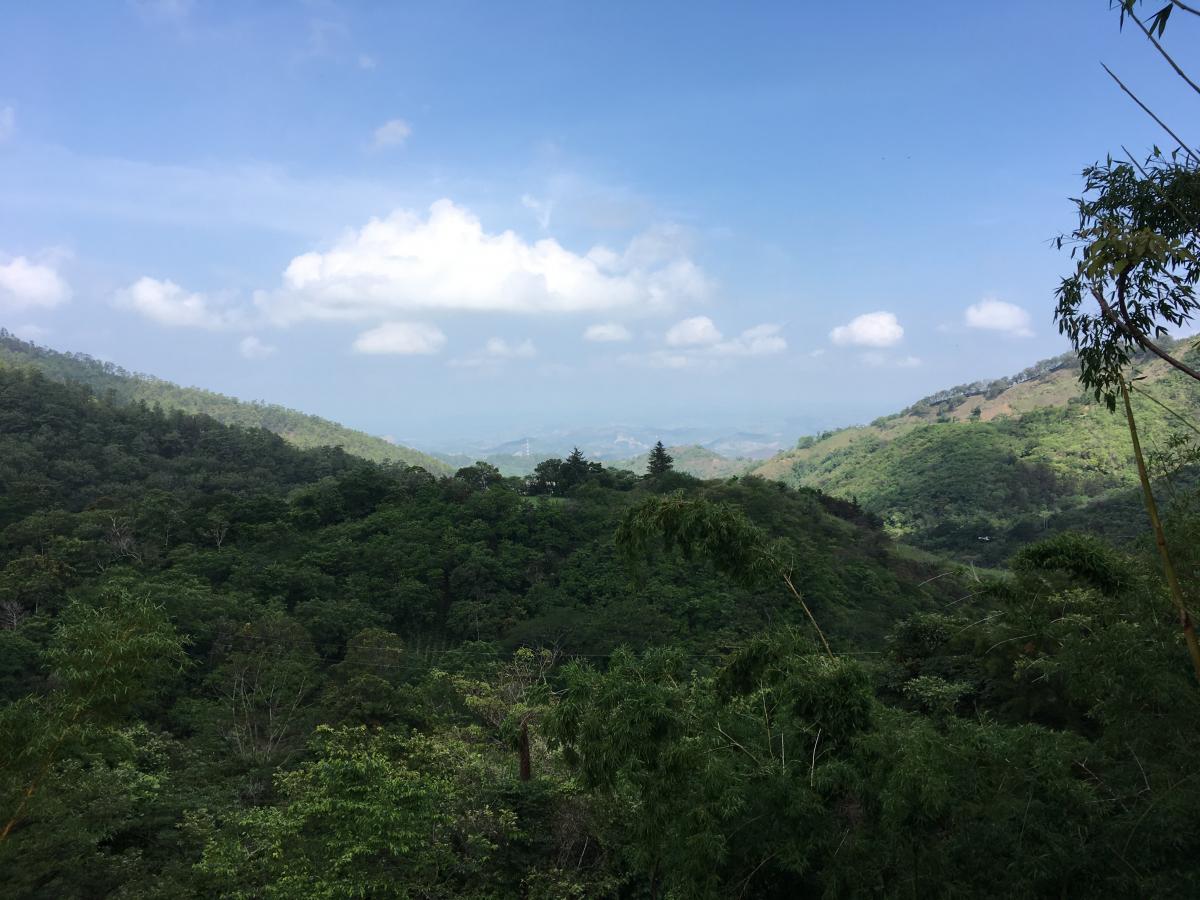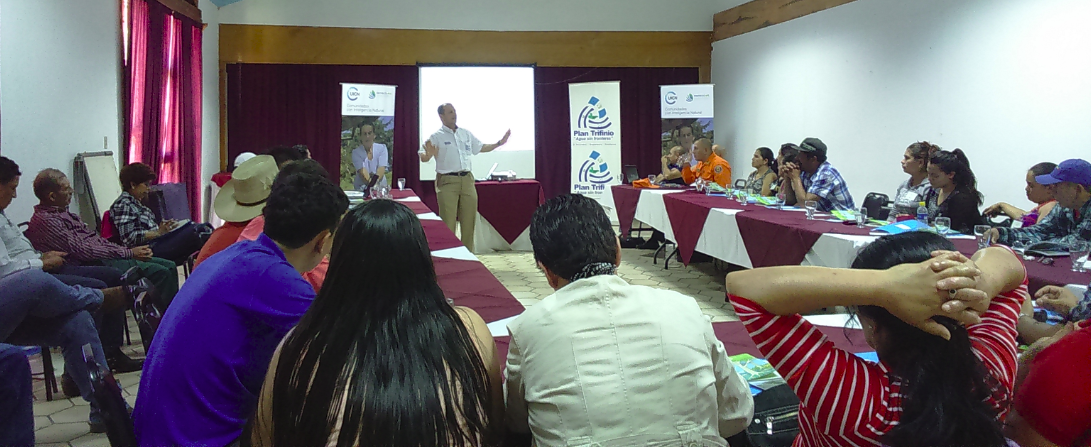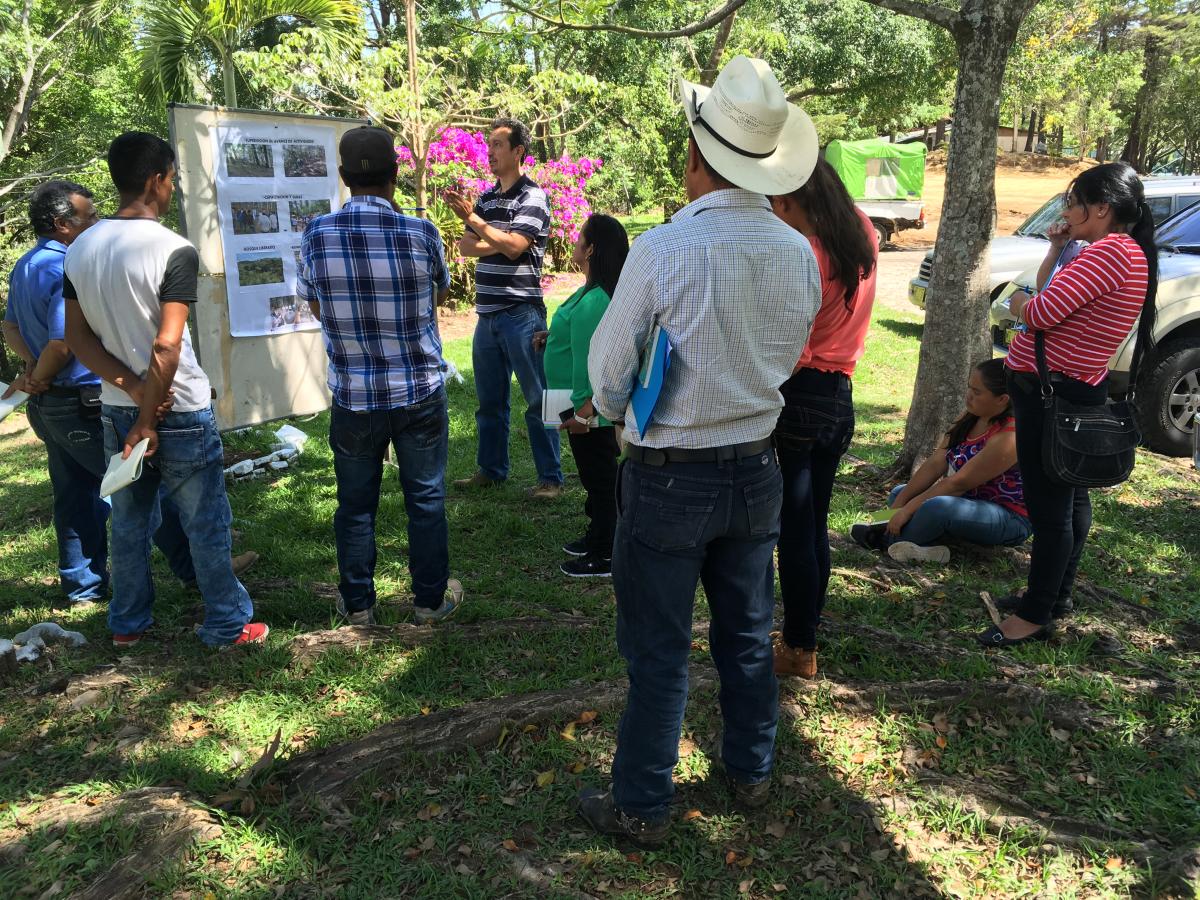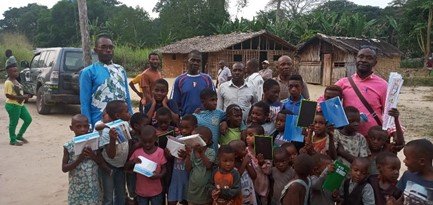Stakeholders from Sumpul Binational Sub-Basin gathered to discuss Natural Solutions to Climate Change
Climate variability is already affecting the agricultural production in the region. Therefore, local stakeholders gathered on May 23rd and 24th during the Natural Solutions and Governance for Climate Change Adaptation Forum.
The Sumpul river sub-basin, located on the border between Honduras and El Salvador, has a territorial extension of 867 km2, and jointly with the Mocal River constitutes the greater basin of the Lempa River. The main socioeconomic activity is agricultural production, and the main products are: vegetables (cabbage, tomato, potato, coriander, celery, radish, carrot, etc.) fruits (peach, plum, avocado and strawberries) and grains production for self-consumption (corn, beans and wheat).
Climate variability is already affecting agricultural production in the area. During the Natural Solutions and Governance for Climate Change Adaptation Forum, local producers, community representatives of both countries and municipal government representatives learned abaout climate scenarios for the region, legislation and policies related to climate change adaptation for El Salvador. Concrete actions to reduce the adverse impacts of climate events through nature-based solutions were also shared.
In the area there are several initiatives that provide support to the communities aiming at strengthening their resilience; however these initiatives are not always articulated. For that reason, during the Forum other projects that work in the area were also invited to participate, in order to establish synergies with the AVE and BRIDGE projects, both of them implemented by IUCN and Plan Trifinio in the region.
During the Forum the governance structures in the Trifinio region were socialized. This governance scheme incorporates mechanisms of trinational coordination, such as working groups on coffee production, tourism and agriculture. Addiotionally, in the upper basin, IUCN and Plan Trifinio support the Sumpul River Binational Committee, which leads a strengthening process on water governance at the local level in the binational sub-basin.
During a field trip, the participants visited the natural reserve El Limo, which is part of the Red de Reservas Naturales Privadas (Network of Natural Private Reserves) of El Salvador (RENAPES). This network promotes the sustainable use of the ecosystems through silvopastoral systems (that combine livestock with tree coverture) and rural tourism to support the wellbeing of families and communities alike. Also, the field trip was an opportunity to learn about other governance structures in the region.
As a result of this Forum, the consolidation process of the water boards and the Binational Committee will move forward through the incorporation of ecosystem based adaptation measures and an effective and equitable governance of the natural resources in the upper basin of the Sumpul River.
Representatives of water boards from both countries, community associations from Honduras, associations for community development from El Salvador (ADESCOS), San Ignacio Municipality, Ministry of Environment and Natural Resources (MARN) from El Salvador and Plan Trifinio as IUCN's implementing partner for AVE and BRIDGE projects participated in this event. During the Natural Solutions and Governance for Climate Change Adaptation Forums organized by IUCN, local stakeholders are active participants through diverse and inclusive formats, such as field trips, where they learn how other local communities organize to face common challenges.






